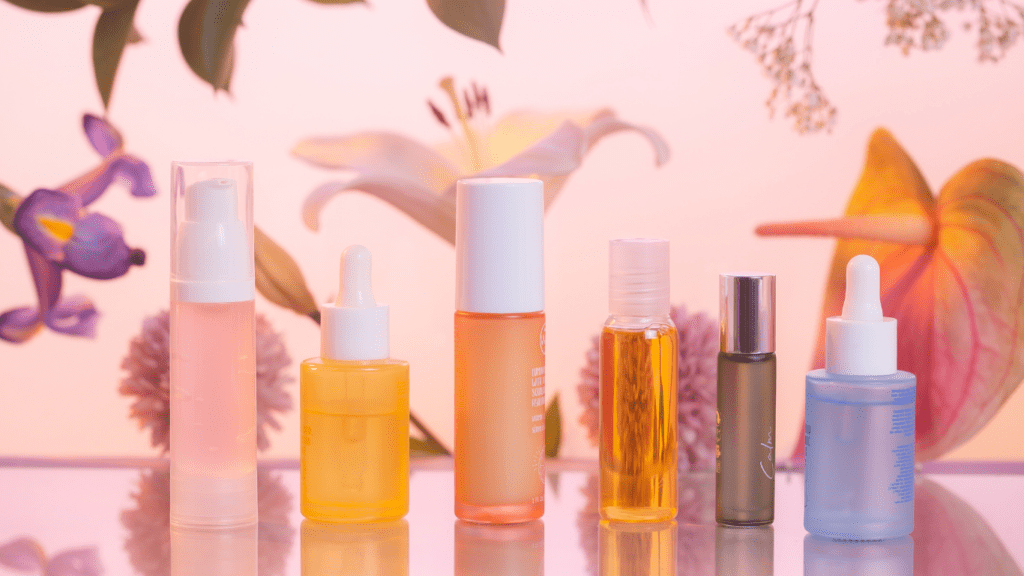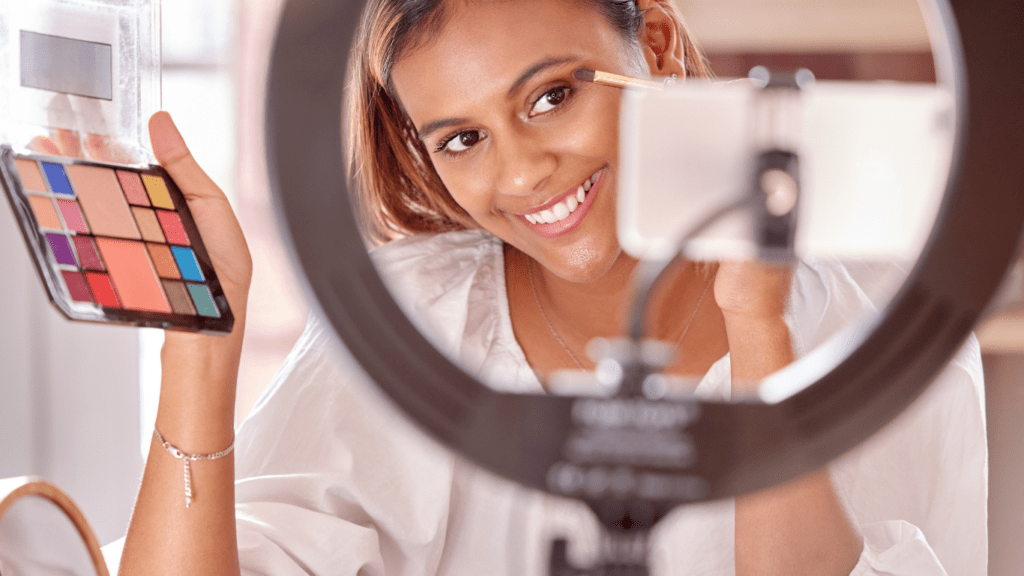The Rise of Custom Beauty Products
Custom beauty products have seen a significant increase in popularity. This trend stems from the desire for skincare and makeup solutions that cater specifically to individual needs. By addressing unique skin types, concerns, and preferences, these products deliver more effective results.
Advancements in technology drive this movement. Brands now use AI, machine learning, and data analytics to create bespoke products. For example, AI-powered apps analyze selfies to determine skin conditions like dryness or acne, recommending tailored formulations. Machine learning algorithms predict the best ingredients based on user data, ensuring optimal product performance.
Several brands lead the charge in personalized beauty. Companies like Proven and Function of Beauty offer personalized skincare products based on detailed questionnaires and proprietary algorithms. L’Oréal’s Perso device creates custom foundation shades at home, offering unprecedented convenience and precision.
Consumers are willing to invest in tailored solutions for better outcomes. Data from a Mintel report shows that 49% of US beauty consumers believe personalized beauty products provide superior benefits. This shift reflects a broader trend in consumer behavior towards seeking specialized products for enhanced efficacy.
The customization of beauty products marks a significant evolution in the industry. By leveraging technology and understanding consumer needs, brands can provide more effective and personalized beauty solutions.
Benefits of Personalized Beauty Products
Personalized beauty products offer unmatched advantages that cater to individual requirements, maximizing their effectiveness. Custom solutions are becoming increasingly popular, driven by the desire for better results.
Tailored to Individual Needs
Personalization helps address specific skin concerns like:
- acne
- dryness
- sensitivity
Brands collect data through questionnaires and apps to create products tailored precisely to user needs. For instance, Proven uses a detailed questionnaire to collect skin data, while Function of Beauty uses AI to determine hair type and preferences. This approach ensures customers receive products that work best for their unique conditions.
Enhanced Effectiveness
Unlike generic products, personalized solutions aim at specific problems, enhancing their overall effectiveness. Brands like L’Oréal have developed devices like Perso, which uses AI to create custom foundation shades, ensuring a perfect match. By directly addressing specific concerns, these products offer superior results, encouraging consumers to opt for tailored solutions. A survey by McKinsey showed that 71% of consumers prefer brands offering personalized interactions and products.
Better Skin Compatibility
Customized beauty products align better with individual skin chemistry, reducing the risk of adverse reactions. By using detailed personal data, brands create formulations that match skin types more accurately. This reduces the likelihood of irritation and enhances overall skin health. Companies like Curology design personalized facial treatments, resulting in higher satisfaction rates among users. This bespoke approach ensures that products not only meet but exceed consumer expectations.
Key Players in the Custom Beauty Market
Several brands have made significant strides in the personalized beauty market, catering to diverse consumer needs through innovation and technology. These key players include both established brands and promising startups.
Established Brands
L’Oréal leads the custom beauty movement with innovative solutions like Perso, a device that creates personalized skincare and makeup products. Clinique iD offers tailored moisturizers by combining base formulas with active ingredient cartridges, addressing specific skin concerns. Estée Lauder’s iMatch provides customized foundation recipes using advanced color-matching technology.
Emerging Startups
Proven uses AI to analyze consumer data and formulate unique skincare regimens, ensuring personalized care. Function of Beauty personalizes hair care products based on individual hair types and preferences, utilizing detailed quizzes. Atolla uses a unique algorithm to create bespoke skincare routines, adapting formulations based on monthly skin assessments.
Technology Driving Personalization
Technology is revolutionizing how beauty products get tailored to individual needs. Innovations like AI and data analytics empower brands to create custom solutions, transforming the beauty landscape.
AI and Machine Learning
AI and machine learning enhance beauty personalization. By analyzing user data, these technologies identify skin conditions, suggest products, and predict future skin needs. For instance, Proven uses AI algorithms to analyze over 47 factors, including lifestyle and geographic data. AI-driven devices like L’Oréal’s Perso create customized skincare and makeup on demand, blending ingredients precisely for individual requirements.
Consumer Data Insights
Consumer data insights drive customized beauty products. Brands collect and analyze data from digital questionnaires, purchase history, and even social media interactions. Function of Beauty uses detailed online quizzes to gather information on hair types, goals, and preferences, enabling the creation of personalized formulations. Data insights also help track product performance and adjust formulations for continuous improvement and customer satisfaction.
Consumer Experience and Feedback

Consumers are increasingly turning to personalized beauty products to meet their unique skincare and cosmetic needs. Feedback from users emphasizes the advantages of these custom solutions.
Real-life Testimonials
Many users have shared positive experiences after switching to personalized beauty products. For example, Sarah Miller from New York noted significant improvements in her skin texture after using L’Oréal’s custom skincare line. Similarly, John Doe from California highlighted how Function of Beauty’s tailored shampoo addressed his specific hair concerns, resulting in healthier hair. These testimonials showcase the effectiveness and satisfaction derived from personalized beauty solutions.
Success Stories
Several success stories underpin the rising popularity of personalized beauty products. Proven’s personalized skincare regimen has amassed a loyal following due to its precision in addressing diverse skin issues. Maria Johnson, a consumer from Texas, credits her glowing skin to the customized products created based on AI analysis by Proven. Another shining example is L’Oréal’s Perso, with thousands of users praising its ability to blend ingredients for the perfect foundation shade, enhancing their makeup routine. These stories highlight the transformative impact of personalization in beauty care.
Challenges and Future Prospects
The rise of personalized beauty products brings both opportunities and hurdles. Addressing these will shape the industry’s future.
Privacy Concerns
Custom beauty products rely heavily on personal data. Brands collect extensive information through digital questionnaires and social media to create bespoke solutions. This raises significant privacy issues. Consumers worry about how companies store, use, and protect their sensitive data. Data breaches and misuse of information can erode trust and deter users. Companies must prioritize robust cybersecurity measures and transparent data policies to reassure customers and safeguard their information.
Market Growth Potential
- Despite challenges, the market for personalized beauty products shows strong growth potential.
- Technological advancements like AI and machine learning enable brands to refine their customization processes.
- These innovations make it easier to tailor products to individual needs, enhancing effectiveness and customer satisfaction.
- According to a report by Allied Market Research, the global personalized beauty market is projected to reach $56.4 billion by 2026, growing at a CAGR of 11.4%.
- Steady consumer demand for tailored solutions and ongoing technological innovations point to a bright future.
- Brands that effectively address privacy concerns while leveraging technology will likely see substantial market expansion.



 Founder & Editor-in-Chief
As the visionary behind Glam World Walk, Anthonyo Corbinollo brings his passion for fashion, beauty, and luxury to life through captivating content that resonates with glamour enthusiasts worldwide. With over a decade of experience in the fashion industry, Anthonyo curates a platform that celebrates the finest trends, exclusive brands, and lavish travel destinations. His dedication to highlighting the elegance in everyday life has made Glam World Walk a go-to source for fashionistas and style icons alike.
Founder & Editor-in-Chief
As the visionary behind Glam World Walk, Anthonyo Corbinollo brings his passion for fashion, beauty, and luxury to life through captivating content that resonates with glamour enthusiasts worldwide. With over a decade of experience in the fashion industry, Anthonyo curates a platform that celebrates the finest trends, exclusive brands, and lavish travel destinations. His dedication to highlighting the elegance in everyday life has made Glam World Walk a go-to source for fashionistas and style icons alike.
